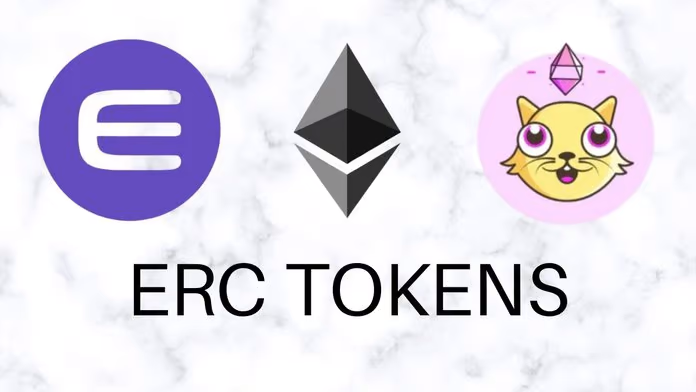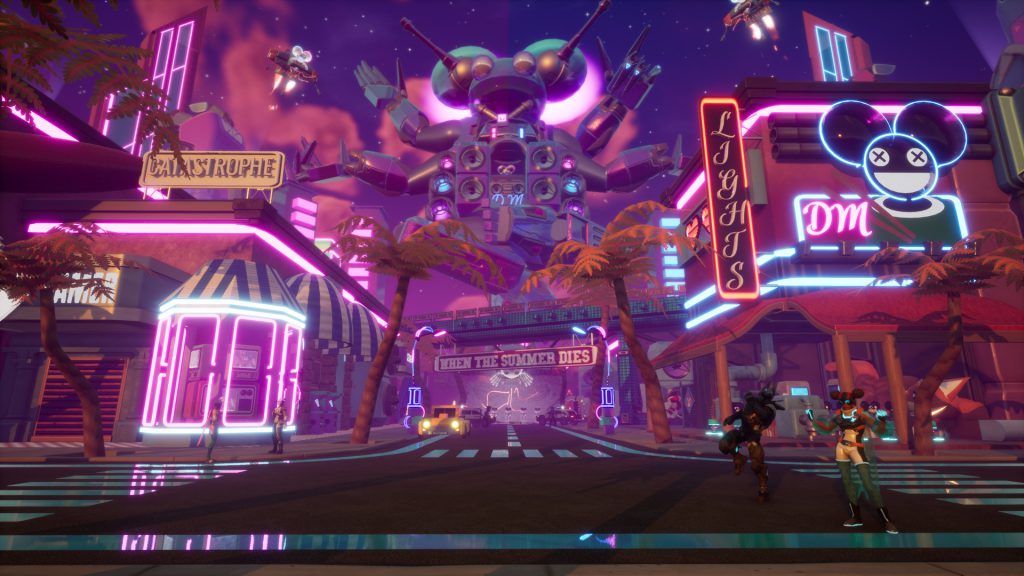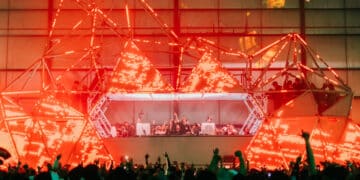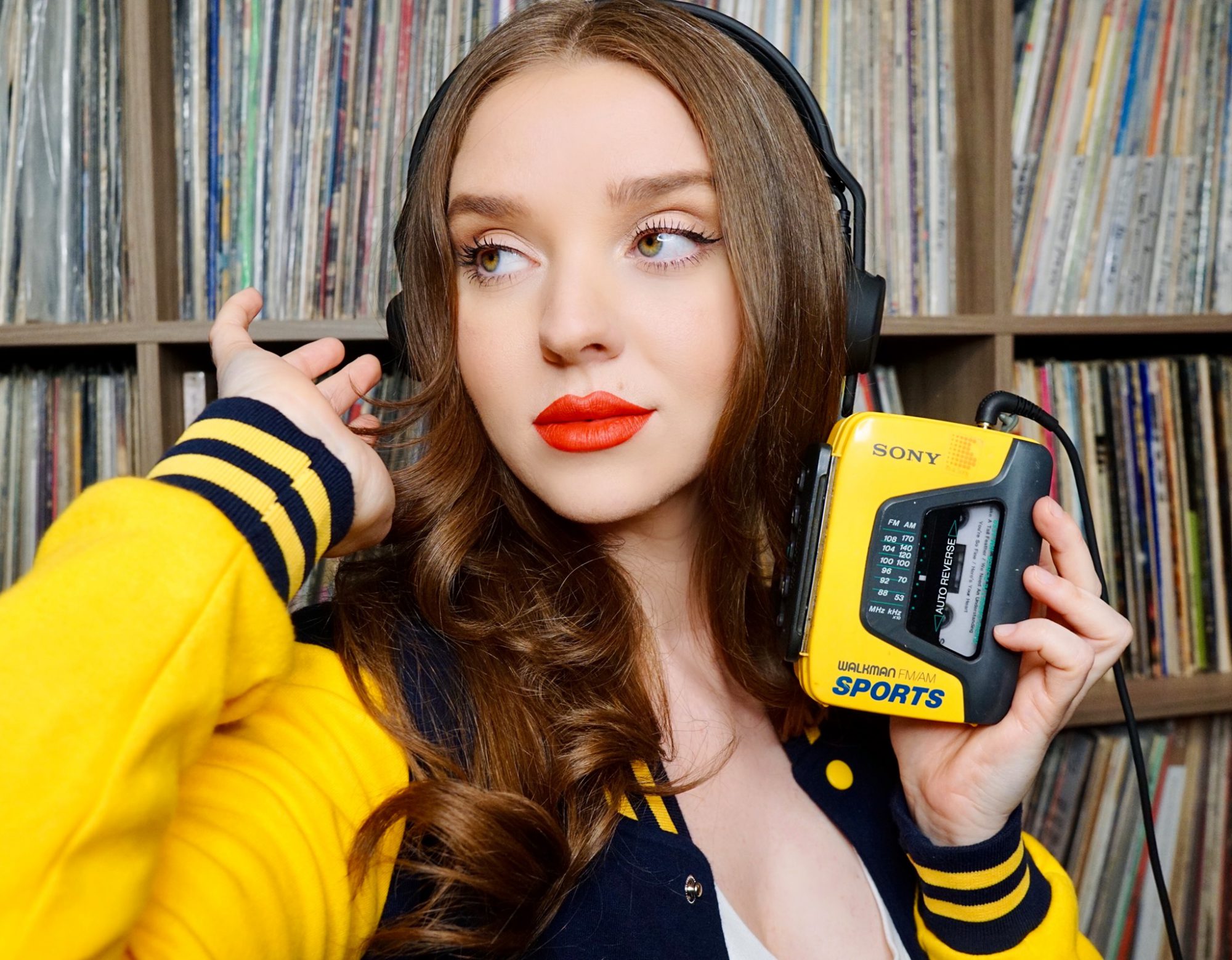We sat down with Dean Wilson, the founder and CEO of SEVEN20, to talk about NFTs and other technologies impacting entertainment businesses.
While SEVEN20 was only founded in 2018, its leader, Dean Wilson, has been entrenched in the business industry for years. Most notably, Wilson was connected with Joel Zimmerman, aka deadmau5, early on and Wilson knew that Zimmerman was more than just a musical performer. Wilson has always been focused on two key things that set him apart in the industry: the concept of partnership models and how technology can drive real change in the business. When he signed deadmau5 to a 360 deal in 2007 it was one of the first of its kind. Together, they’ve done a lot to drive change, and the formation of SEVEN20 was really just the start.
In just the years since SEVEN20 came to be, we’ve seen the introduction of NFTs (which deadmau5 seamlessly embraced with great success), the continued rise of ticket resale markets (both legal and otherwise), and pressure on streaming platforms to find better ways to share their success with creators. Not only does Dean Wilson believe that we’re on the cusp of technology solutions around this and other problems, but he and Zimmerman have also even deployed new ventures like 720mau5 to capture new markets.
SEVEN20 quickly deployed its own publishing company, launched labels under Wilson’s creative direction, and has partnered with blockchain platforms. Two of these are Audius and Emanate that are working to change music distribution forever with the hope to slow or reverse the commodification of music. Wilson believes artists can break free of the chains of traditional platforms resulting in democratized distribution for everyone. Toss in the technology-driven creativity of the mau5 himself and this seems like a winning combination for positive change over the coming years.
Looking to gain some added insight, we caught up with Dean Wilson to chat about the future and more. So read on for the full interview to get a complete picture of all that technology can offer to the music business.
Hi Dean, it’s great to speak with you today! I want to give readers some background before we dive into the deep end of NFTs. Can you tell us why you founded SEVEN20 and what you envisioned to be unique about the company even before NFTs?
It’s more about going back to where I started from and where we’ve ended up, which is really focusing more on what the music side of the business is and the great producers/artists/performers/DJs that are out there. It wasn’t so much about trying to recreate but coming up with new concepts while following the work I had done with deadmau5 over the years. With such a gamer technologist and really seeing the path where we could use the music side of the business and the IP to forge a new path with the technologies that are being built on the blockchain.
It’s been a really exciting time to see the future of what technology could help us create. Since the music business has predominantly been built around multibillion-dollar businesses with their own IP. You know we’ve been fiercely independent with deadmau5 and I’m his partner on mau5trap and many other business ventures that we’re doing. It’s always been about moving at light speed with where the technology is going.
This gives you an overview of where SEVEN20 is as well as 720mau5 which is a venture together Joel and I manage together. It’s not so much that SEVEN20 is a management company but rather SEVEN20 is an entertainment company that is really looking forward to technology and what the future of the music business is going to be.
As a segue into the NFT discussion, what were some early indications that you were watching in the gaming space that you saw ripe to carry over into the music industry?
We always think is that the gaming business moves exponentially faster and quicker with technology. The music business is always dragged into new technology because it is such a complicated space. There are so many different rights holders that are trying to generalize something. You know everything happens at the speed of molasses when it comes to any kind of change in the music business. When you look at the 10-7 years cycle, as I call it, we went from vinyl into CD, CD into digital download, digital download into streaming. What’s next? I think what you’re going to see is blockchain technology and the explosion of metaverses. That is where music will be consumed in the new world.

NFTs can be a bit offputting to those that don’t understand what they are, do you have a reasonably simple way you like to explain this to music fans? Or to your friends and family?
A non-Fungible Token is an NFT. What that really means is that you’re using a blockchain with an ERC token to verify your ownership of whatever you want it to be. You can buy or sell a car, you can buy or sell a house. It just so happens that it has had an explosion that blew the doors off and everyone is saying, “what is an NFT?” But, you know, NFT doesn’t mean that it is a digital piece of art. NFTs can be on anything then it sits on top of a blockchain which makes it traceable in real-time and in perpetuity.
I think what the music business (or any IP-owned creative) is really excited about is the secondary market. We weren’t allowed to play in that market and now we can get paid every time it is bought or sold. There’s a billion-dollar business for secondary tickets where we don’t ever get a cut of that. Tickets that were once selling for $70 are selling for $150 and we don’t get a cut of that. I think that that’s the exciting part of the future of what the technology use case can do. It’s not about JPEG art, it’s about the technology use case and how it’s going to affect everybody’s life over the coming months and years. It will become quicker, more transparent, more protected, and practically unhackable.
SEVEN20 has a broad range of illustrious artists as well as up and comers. How do you see NFTs playing a role for each? For example, a deadmau5 NFT will immediately attract attention (and high prices) due to his rabid fan base. But what about others in your portfolio like Callie Reiff or Lamorn?
They might be fascinated by professionalized ownership. Why do we sell music and connect to our fans the way we currently do? Why do we have to put it on a DSP (streaming platform)? Why can’t we connect directly with our fans? Bandsintown and some other platforms have done direct to fans – pay what you want for a new album. It’s really interesting when you see the stats. You’ll see that the average sale was actually higher than what you got on Apple when you sold an album for $9.99. Then you’ll lose a percentage from Apple, then a percentage to distributors. If you’re going Direct To Consumer (DTC) you’re cutting out the middlemen and all their percentages. You’re also cutting out the gatekeepers because at that point you’re direct to the fan. Isn’t that where every artist wants to be? Connected directly to their core fans?
If you’ve built a fan base over many years then you should be able to build a DTC business. We have slowly shown that over the years with deadmau5. How does it change with the younger eyes? I think time will tell in the NFT space. I think we’re going to see an explosion of fractionalized ownership sites. There’s a couple of others we see that are being built right now where they are going to be selling music as NFTs. Troy Lanz did it recently where he made a million dollars in six minutes. You don’t do that unless you’re in the top 1% of the 1%. You don’t clear that type of money from a DSP. Then the fans are getting educated, feel invested, and have found a piece of something they can resell. The fans feel more connected to the artists and the artist feels more connected with the fans. As the NFT business explodes each one starts to grow with value as that business grows.

What are you, personally, most excited about as a result of the current technology revolution?
Transparency, real-time reporting, connecting directly to fans. The way technology is taking us is really exciting and every single business now is looking at what the blockchain does. The buzzword two or three years ago was crypto, crypto, crypto and now crypto is 2.2 or 2.3 trillion dollar market cap. It’s monstrous. If you went back six to eight months, Wall Street said there aren’t any investment funds in crypto. Now every single Wall Street player has a crypto fund. If you look at how fast that’s moved, where would we be going with blockchain? Decentralized business, currency, and finance. Well, that’s already happening, how fast is that going to move? Technology is moving 10 times as fast as it did five years ago and 100 times as fast as it did 10 years ago. Where are we going to be in a year from now, five years from now? It will be unrecognizable.
I think the big thing that is exploding right now is blockchain video games. You know Sandbox, Blanco’s Block Party from Mythical Games, Decentral Land, and Star Allies. All these games which are built on a blockchain in the video game business are at the forefront of moving fast with technology, which is where the biggest and fastest changes are happening.
Those NFT platforms that are built inside of those video games are enormous but don’t make all the headlines like someone selling a million-dollar NFT. These guys are selling virtual land and doing sales of 25 to 30 million and they’re doing NFT drops every single day. The ones that make the headlines, like Cryptopunks, announced last week that Open Sea did a billion dollars in trade! As it becomes more usable and understandable to the masses, and easier to buy and trade from your phone, you can see that NFT’s are going to become a social currency.
Finally, we saw you posted about deadmau5 developing an interactive experience, can you explain that to me.
Joel has been building his interactive experience; it’s gamified, it has virtual gameplay, virtual goods, it will have chat functions, and it will have live shows. All will be built into what most people would consider a game engine. It’s built on Epic’s Unreal as a game engine. When Unity or Unreal put their game engine on a blockchain that is when it really changes everything because two of the biggest games engines in the world now are on a blockchain.
In a simplistic way, we went from Lego bricks in real life then we went to Minecraft, which is Lego brick building on a computer, then we went to Roblox, which is the ability to build a game pretty much in real-time and then put it on a server and people come and find a game then buy stuff within the game. Now Manticore is basically taking all of that growth along with Triple-A game graphics and assets. It’s mind-bending when you think about it.
Triple-A games are 100 to 200 million dollars built over a four to five-year period. Now with a bunch of different assets and a bunch of different links you could build this in real-time on Epic’s Unreal engine. That’s mind-blindingly quick, how that’s gone from there to where we are today. That’s what really impressed Joel and me, why we are supercharged to finish his interactive experience. We had to find a partner like Manticore or go raise a million dollars to go and finish on our own.








